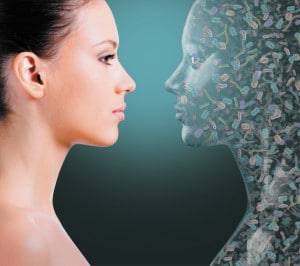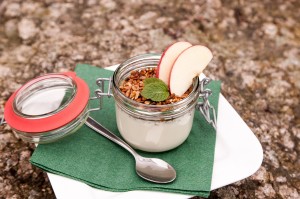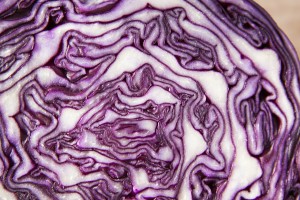“Poop – Heart Connection” the Dirty Little Secret!
“Poop Heart Connection” the Dirty Little Secret!
We have all heard the saying: “We are what we eat”.
At a simplistic high level, it certainly makes a lot of sense. The nutrients that are absorbed by our stomach or the gut feeds the rest of the body.
Maintaining a healthy heart, or a healthy brain or healthy organ, means we need to assimilate nutrients efficiently out of our food. For the most part, who we are is a reflection of your physical body.Therefore, our bodies are a reflection of what we eat.
The above connection is true for the most part. However, there is more to it. You see, hidden in our gut is a whole system that regulates our mind and our body.
Invasion of the Body Snatchers!
In our bodies are several colonies of “Good microorganisms” that is beneficial to your health and well-being. These colonies are called the human microbiome.
The human body is colonized by a vast number of microbes, collectively referred to as the human microbiota. The link between these microbes and our health is the focus of a growing number of research initiatives, and new insights are emerging rapidly.

https://www.nature.com/nature/focus/humanmicrobiota/#Credit: Joana Ricou / Steven H.
According to Wikipedia:
The human microbiota is the aggregate of microorganisms, a microbiome that resides on the surface and in deep layers of skin (including in mammary glands), in the saliva and oral mucosa, in the conjunctiva, and in the gastrointestinal tracts. They include bacteria, fungi, and archaea.
Human microbiota – Wikipedia, the free encyclopedia
https://en.wikipedia.org/wiki/Human_microbiotaWikipedia
According to Lita M. Proctor in the article:
The Human Microbiome: A True Story about You and Trillions of Your Closest (Microscopic) Friends published in the September 2013 issue of Action Bioscience.
The human microbiome is composed of the microbes, as well as their genes and genomes; that live in and on the human body. Scientists are discovering just how important these resident microbes are to our health and well-being, particularly with respect to the roles they play in maintaining our immune systems, contributing to the digestion of our food, and acting as a first line of defense against pathogens. There are many diseases that may be the result of disturbed microbiomes; however, microbiome-based medical treatments and applications are on the horizon.
https://www.actionbioscience.org/genomics/the_human_microbiome.html
- Scientists believe that infants receive their first inoculum of microbes from their mothers during childbirth.
- Our immune systems depend on these early inoculations to distinguish “self” from “nonself” during future encounters with microbes.
- Each region of our body has its own distinct community of microbes living on or in it.
- Routine practices, including the use of antibiotics, may alter the human microbiome by reducing non-targeted bacteria and creating antibiotic resistant strains.
- Researchers believe there may be a connection between the recent increase in autoimmune diseases and cumulative disturbances to our microbiomes.
- Our microbiomes are quite dynamic over our lifetimes and change with respect to both the numbers of microbes and their membership.
- Bacteriotherapy uses transplants of gut microbiomes from healthy individuals to sick patients in order to restore healthy, attack-resistant microbiota.
- Foods with probiotics, such as yogurt, may interact with gut microbes to confer a health benefit to humans.
- Prebiotics may provide preferential growth substances for members of the human gut microbiome, thereby aiding in digestive functions.

30 reasons why the solution for Health & wellness means going beyond a pill–explore healthier options to resolve the root cause!
Today’s powerful treatment options for treating health, including diet and improved nutrition, naturopathy, functional medicine, osteopathy, chiropractic care, yoga and meditation, to name a few, are available but rarely considered. Learn more online at The Mental Wellness Summit from August 10-17 for FREE!
Join Now – For Free
The Gut-Heart Connection
There is a strong connection between gut health and heart health.
According to an article published by Cleveland Clinic in their May 2015 issue of ConsultQD: https://consultqd.clevelandclinic.org/2015/05/researchers-discover-gut-heart-connection-in-coronary-artery-disease/
Researchers Discover Gut-Heart Connection in Coronary Artery Disease
Dr. Bo Shen: “Treatments may one day be revolutionized”
A newly discovered link between coronary artery disease and the overgrowth of bacteria in the small intestine presented by Cleveland Clinic researchers at Digestive Disease Week 2015 today means that there may soon come a day when the standard of care will be for gastroenterologists and cardiologists to exchange patients for additional evaluations.
After treating a patient’s primary illness, a gastroenterologist would send a patient with bloating or abdominal discomfort to a cardiologist to be checked for coronary artery disease (CAD). And, likewise, cardiologists would send patients with CAD for an additional evaluation with a gastroenterologist.
Although previous studies have shown a connection to the type of flora in the gut and inflammation in the coronary arteries, Cleveland Clinic researchers believe it is the first study to look at the relationship between small intestine bacteria overgrowth (SIBO), and coronary artery disease (CAD).
“What our research adds is that patients with SIBO may be considered high risk for CAD and may need to have other CAD risk factors, such as hypertension, hyperlipidemia or diabetes, more aggressively controlled to decrease their chances of worsening coronary artery disease, leading to serious event like a heart attack,” says Cleveland Clinic gastroenterologist Bo Shen, MD, who specializes in inflammatory bowel disease.
According to the Centers for Disease Control and Prevention, heart disease is the leading cause of death in the United States for both men and women – with about 11.3 percent of the population suffering from CAD. The estimated rate of SIBO ranges up to about 20 percent in the healthy population, but skyrockets in patients with gastrointestinal disorders. For example, patients with irritable bowel syndrome (IBS) have about a 78 percent rate of SIBO.
Cleveland Clinic researchers believed that cause of the link may be due to the metabolic process in digestion that produces bacterial byproducts, predisposing a patient to CAD. For example, the metabolism of dietary choline produces trimethylamine, (TMA) which converts to trimethylamine-N-oxide (TMAO) in the liver. TMAO may cause atherosclerosis, leading to CAD.

30 reasons why the solution for Health & wellness means going beyond a pill–explore healthier options to resolve the root cause!
Today’s powerful treatment options for treating health, including diet and improved nutrition, naturopathy, functional medicine, osteopathy, chiropractic care, yoga and meditation, to name a few, are available but rarely considered. Learn more online at The Mental Wellness Summit from August 10-17 for FREE!
Join Now – For Free
Gut Brain Connection
In Harvard Health Publication, several good example are cited illustrating how our gut influences are brain and our brain’s impact on our gut. https://www.health.harvard.edu/healthbeat/the-gut-brain-connection
Have you ever had a “gut-wrenching” experience?
Do certain situations make you “feel nauseous”?
Have you ever felt “butterflies” in your stomach?
We use these expressions for a reason. The gastrointestinal tract is sensitive to emotion. Anger, anxiety, sadness, elation — all of these feelings (and others) can trigger symptoms in the gut.
The brain has a direct effect on the stomach. For example, the very thought of eating can release the stomach’s juices before the food gets there. This connection goes both ways. A troubled intestine can send signals to the brain, just as a troubled brain can send signals to the gut. Therefore, a person’s stomach or intestinal distress can be the cause or the product of anxiety, stress, or depression. That’s because the brain and the gastrointestinal (GI) system are intimately connected — so intimately that they should be viewed as one system.
This is especially true in cases where a person experiences gastrointestinal upset with no obvious physical cause. For such functional GI disorders, it is difficult to try to heal a distressed gut without considering the role of stress and emotion.

In John Hopkins article on Healthy Body : https://www.hopkinsmedicine.org/health/healthy_aging/healthy_body/the-brain-gut-connection
the author writes about intelligence in the gut:
If you’ve ever “gone with your gut” to make a decision or felt “butterflies in your stomach” when nervous, you’re likely getting signals from an unexpected source: your second brain. Hidden in the walls of the digestive system, this “brain in your gut” is revolutionizing medicine’s understanding of the links between digestion, mood, health and even the way you think.
Scientists call this little brain the enteric nervous system (ENS). And it’s not so little. The ENS is two thin layers of more than 100 million nerve cells lining your gastrointestinal tract from esophagus to rectum.
What Does Your Gut’s Brain Control?
Unlike the big brain in your skull, the ENS can’t balance your checkbook or compose a love note. “Its main role is controlling digestion, from swallowing to the release of enzymes that break down food to the control of blood flow that helps with nutrient absorption to elimination,” explains Jay Pasricha, M.D., director of the Johns Hopkins Center for Neurogastroenterology, whose research on the enteric nervous system has garnered international attention. “The enteric nervous system doesn’t seem capable of thought as we know it, but it communicates back and forth with our big brain—with profound results.”
A robust microbiome (good bacteria) helps to improve digestion, metabolism, and immunity. And in his new book, The Microbiome Diet, Raphael Kellman, MD, says its healthy power goes even further. “[The microbiome is a] whole inner world that lives within your intestines—trillions of tiny microbes that help you extract the nutrients from your food, balance your mood, and sharpen your clarity and focus,” he says. “When we eat the foods that keep this inner world in balance, we also feel more energized than ever before and develop healthy, glowing skin.”
You’ve probably already heard of putting probiotic foods like fermented kimchee or Kefir—which contain healthy live bacteria—on your plate for that reason. But there are also foods and spices—called prebiotic foods— that nourish the healthy bacteria already living in your body. You need both kinds to keep your microbiome balanced, Dr Kellman says.
30 reasons why the solution for Health & wellness means going beyond a pill–explore healthier options to resolve the root cause!
Today’s powerful treatment options for treating health, including diet and improved nutrition, naturopathy, functional medicine, osteopathy, chiropractic care, yoga and meditation, to name a few, are available but rarely considered. Learn more online at The Mental Wellness Summit from August 10-17 for FREE!
Join Now – For Free
Video
The Invisible Universe Of The Human Microbiome – NPR





